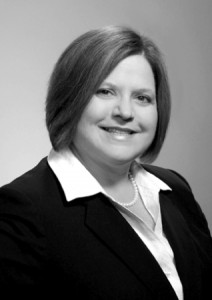THE AMERICAN Institute of CPAs (AICPA) and the National Association of State Boards of Accountancy (NASBA) are testing the waters in the Middle East, with the launch of the US Certified Public Accountants examination at trial sites in some countries including UAE, Bahrain, Kuwait and Lebanon. In an exclusive joint interview with the Accountant Middle East, Craig Mills, AICPA Vice President – Examinations and Continuing Professional Education and Colleen Conrad, NASBA Executive Vice President and Chief Operations Officer, share about their historic foray into the region.
Having launched in the UAE, what are your expansion plans, particularly in the Middle East?
We have been very pleased with the demand in the UAE over the course of the first year and we believe the momentum will continue moving forward. We are proud to work with NASBA and Prometric to administer the US CPA exam in the Middle East to meet the demand for US CPA licensure.
We are working to raise awareness of the exam in the Middle East and making sure that we are providing candidates with the information they need to understand the process of registering and taking the exam, as well as the content which is tested. At this point we are focused on the countries we are presently administering the exam, which include the UAE, Bahrain, Kuwait and Lebanon.
Why is it important for accounting students to gain a US CPA qualification? What does the exam offer to stand out from the crowd of other certifications?
The US CPA license is the premier accounting credential in the United States and is highly respected throughout the world. According to a recent research by AICPA, the qualification is the most highly regarded and trusted by both financial professionals and investors. Equally, business decision makers ranked the CPA first among financial and business professionals.
To become a licensed CPA, candidates need to meet rigorous educational and experience requirements, pass an intensive Four-section examination which involves 14 hours of testing and continue to keep their skills up to date with Continuing Professional Education. Additionally, research has shown that the job market for CPAs is stronger than it is for non-licensed accountants and that traditionally they earn up to 10% more than non-CPAs.
As one of the largest accounting bodies in the world and most recognised, what do you think about US accounting education?
The system of accounting education in the United States is extremely strong and the Uniform CPA examination protects the public interest by helping to ensure that only qualified individuals become licensed as US Certified Public Accountants (CPAs). Everyone who wishes to become a CPA is required to pass the CPA Examination and it is the only licensed qualification in accounting in the United States.
Once someone becomes a US CPA, Continuing Professional Education (CPE) is required for them to maintain their professional competence and provide quality professional services. CPAs are responsible for complying with all applicable CPE requirements, rules and regulations of the board of accountancy in the state in which they are licensed as well as those of membership associations and other professional organisations.
AICPA works with the academic community to strengthen the education students receive – from their introduction to accounting, through college and PhD programmes. In fact, AICPA, along with the American Accounting Association recently released the Pathways Report – a study on the future of higher education in the accounting profession and how it can be strengthened even further.
One of the ways AICPA supports the academic community is through Non-CPA Faculty Associate Membership, which is open to accounting faculty who are not CPAs. This membership provides educators with tools, techniques, and resources for teaching accounting and keeping students up-to-date on what’s happening in the profession.
In addition, AICPA supports students at the high school level with a dedicated website known as Start Here, Go Places – http://www.startheregoplaces.com/. This site provides them with insights into what the accounting career would mean for them and offers them the ability to join as student members.
Similarly, AICPA has a website for college students and those who are currently in the process of studying for the Uniform CPA, called This Way to CPA – https://www.thiswaytocpa.com/. The website, which features a section for international students, offers great career tools for aspiring CPAs and a community for them to network amongst each other.
What are the priorities for AICPA at the moment?
Our main priority is and will continue to be developing the accounting profession by attracting, educating and nurturing CPAs throughout their professional careers and into retirement. We offer our members the resources and support they need to make sense of an increasingly changing world and provide first-class work for their clients and their companies. We are firmly committed to ensuring that the US CPA is one of the premier accounting credential in the world.
As you are aware, through the launch of the international CPA exam, the AICPA has expanded its focus beyond the US borders as the world’s financial markets increasingly become globally interconnected. One way we are doing this – both domestically and abroad, is working with the Chartered Institute of Management Accountants (CIMA) through a joint venture to advance the science of management accounting through a new designation – Chartered Global Management Accountant (CGMA).
Our priority for the CGMA is to elevate management accounting and further emphasise its importance for businesses worldwide and promote it as the premier management accounting designation in the world.
The AICPA is also committed to advocating for high quality, relevant regulation and standards at the international level and establishing a differential set of accounting standards for private companies in the United States.
You have embarked on a major expansion plan, with the launch of the US CPA Examination at test sites in Japan and the Middle East. What is special about these locations that you selected them as your first launch sites?
The international locations have been and will be evaluated based on a set of criteria, including:
– Ability to deliver the exam without legal obstacles,
– Security threat to the exam (both physical security at test centre and intellectual property security of exam content) assessed at levels equivalent to those presented domestically, and
– Existence of established Prometric test centres.
At this time, countries that have not met those criteria to the combined satisfaction of NASBA, the AICPA and Prometric are not under consideration as testing locations. While we appreciate the desire for the Exam to be available in many locations, we can best serve the US State Boards of Accountancy and the accounting profession by ensuring a safe, reliable and valid exam.
What has been the response so far? Kindly give us the exact number of students who have done the US CPA exams in these regions.
We have 4,055 unique candidates who have applied to take the exam since May 1, 2011. Similarly, 12,404 examination sections have been administered from August 1, 2011 to August 31, 2012.
Tell us more about the exams. What are the pre-requisites required for anyone interested in pursuing the US CPA qualification. What is the certification or license procedure afterwards?
In order to qualify to take the CPA exam outside the US, candidates will have to first establish their eligibility through application to a state board participating in the International CPA Examination Administration Programme.
For specific instructions on how to apply to take the CPA Examination, candidates visit the CPA exam section of the NASBA website. Applications from citizens of other countries must apply to state boards using the same criteria and procedures applied to US CPA candidates.
There are three basic requirements that must be met in any state or jurisdiction to qualify for a CPA license – education, examination, and experience. The education and experience requirements vary for each state or jurisdiction. Many jurisdictions require an additional examination in ethics.
The successful completion of the Uniform CPA Examination is a requirement in all 55 jurisdictions.
Candidates who obtained their education outside the United States will need to be evaluated by a foreign credential evaluation service to determine how it compares to US education.
Each jurisdiction lists the foreign credential evaluation services they accept, so candidates should check if it’s approved by the jurisdiction before selecting a foreign evaluation service.
Requirements for obtaining a CPA license vary across 55 jurisdictions. NASBA has a website available to the public called ALL, Accountancy Licensing Library: http://all.nasbatools.com/jurisdiction/list_jurisdiction, and it’s written in easy-to-understand language.














